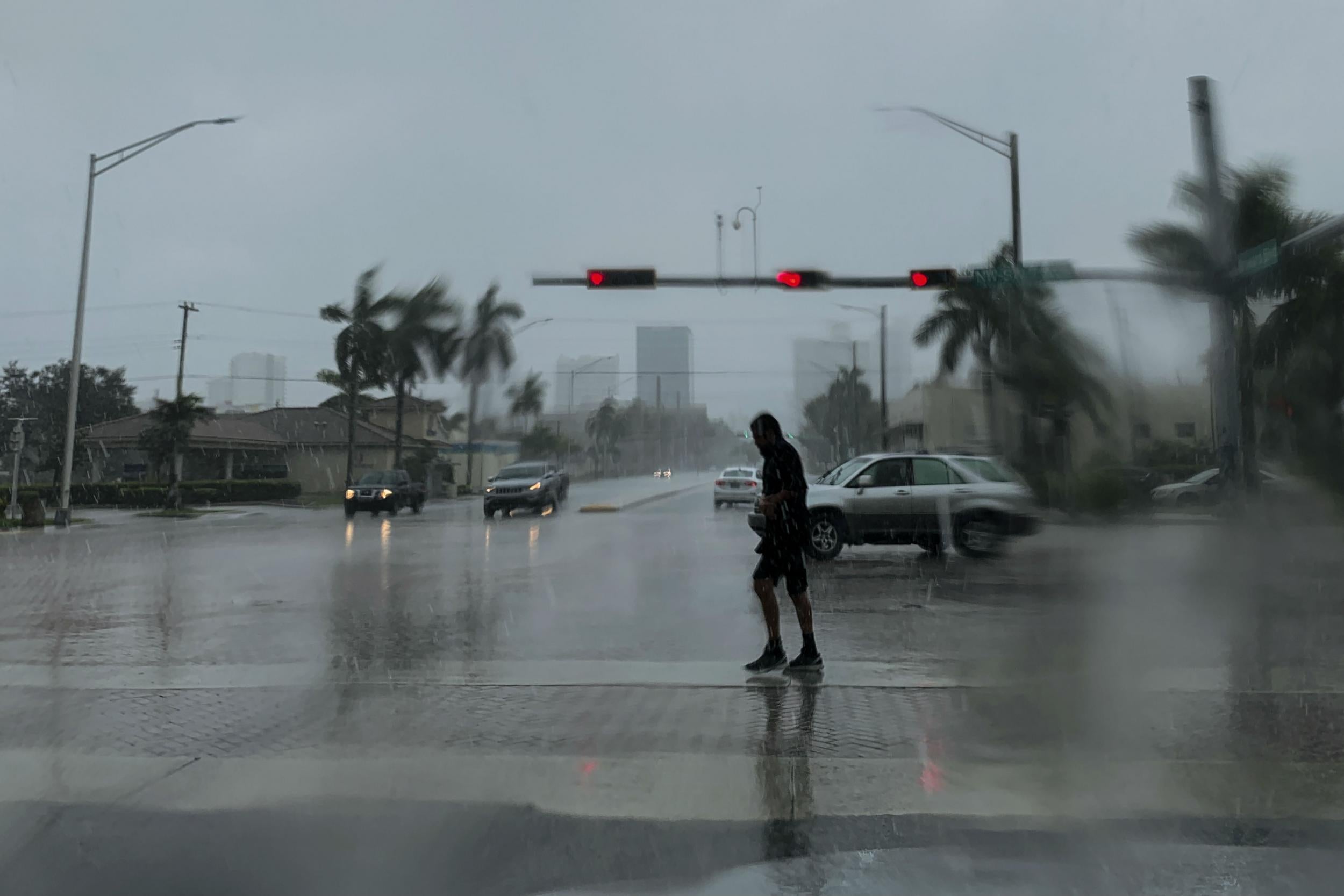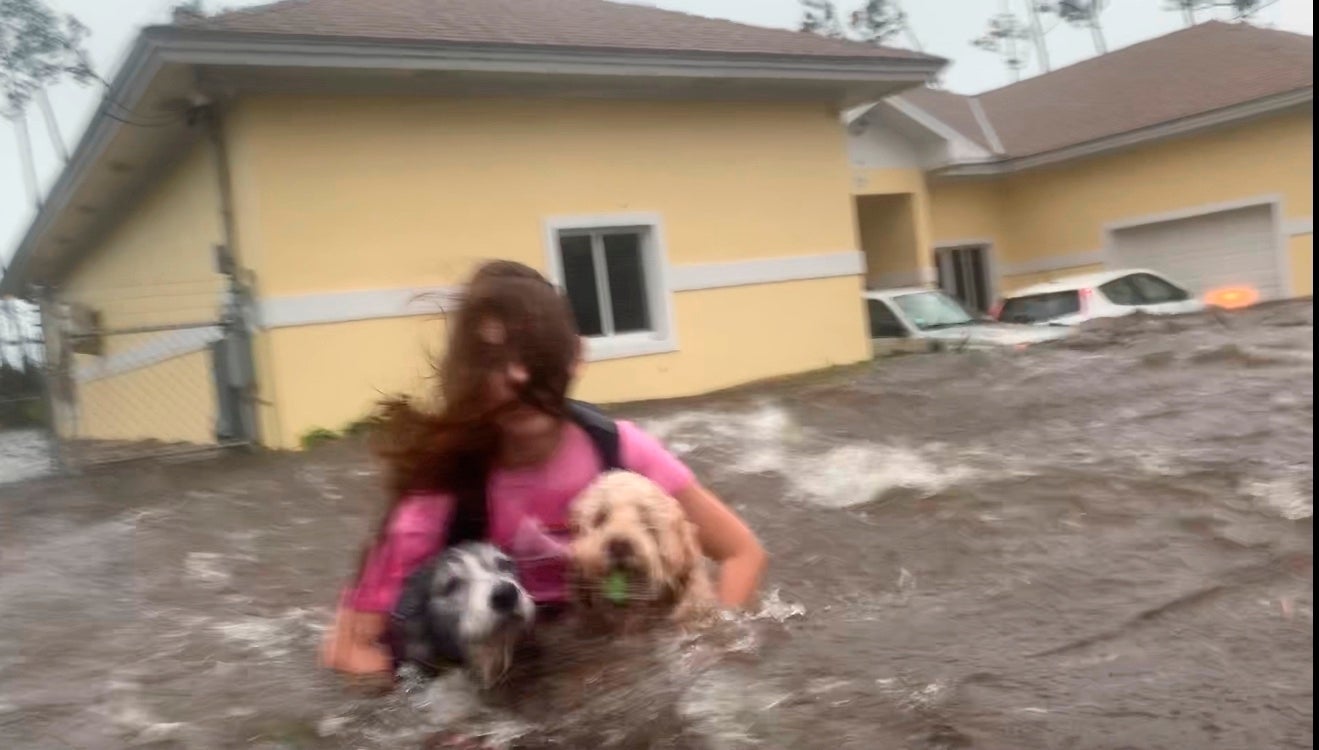Hurricane Dorian: Millions ordered to evacuate as storm bears down on US
Officials in Bahamas fear death toll of five will increase as searches continue

Your support helps us to tell the story
From reproductive rights to climate change to Big Tech, The Independent is on the ground when the story is developing. Whether it's investigating the financials of Elon Musk's pro-Trump PAC or producing our latest documentary, 'The A Word', which shines a light on the American women fighting for reproductive rights, we know how important it is to parse out the facts from the messaging.
At such a critical moment in US history, we need reporters on the ground. Your donation allows us to keep sending journalists to speak to both sides of the story.
The Independent is trusted by Americans across the entire political spectrum. And unlike many other quality news outlets, we choose not to lock Americans out of our reporting and analysis with paywalls. We believe quality journalism should be available to everyone, paid for by those who can afford it.
Your support makes all the difference.Millions of Americans have been ordered to evacuate their homes after Hurricane Dorian – having relentlessly battered the Bahamas for days, leaving at least five fatalities and dozens of injuries in its wake – picked up speed and size and started bearing down on the southeastern coastline.
Officials in the Bahamas said at last 13,000 homes had been destroyed by massive flooding and powerful winds that blasted the nation with a force not matched since 1935. Hubert Minnis, the prime minister, urged Bahamians to show love to come through the ordeal suffered by their country, while aerial video recorded over the Bahamas’ Great Abaco Island showed mile upon mile of flooded neighbourhoods and smashed buildings.
In the US, meanwhile, authorities in Florida, Georgia and the Carolinas were on high alert, as they watched for indications the storm may make landfall in their states.
Early on Tuesday, Dorian was downgraded by a single notch to a category 2 storm, with sustained maximum winds of 125mph. At the same time, the size the hurricane covered increased, as did the speed at which it was moving.
“The headline for this #Dorian advisory is NOT that the wind speed has slightly decreased,” the National Hurricane Centre said of an update it issued on Twitter. “The combined wind, surge, and floods hazards are the same or even worse since the hurricane has become larger.”
Having been essentially stationary over Grand Bahama island for two days, Dorian began moving northwest at 2mph – less than walking speed – and was around 105 miles east of Fort Pierce, Florida.
It was expected to make its way towards the Florida coastline by the end of the day, though it remained unclear if it would make landfall there, despite previous warnings and authorities ordering the evacuation of a a number of vulnerable counties. A total of nine counties issued mandatory evacuation orders, including Duval County, which includes Jacksonville, one of Florida’s two biggest cities, and some areas in Palm Beach County, home to President Trump’s Mar-a-Lago resort.
The governors of Georgia and South Carolina also ordered evacuations of some coastal counties. Forecasts suggested the storm will move northwards, hugging the coast of Georgia and potentially making landfall in either North or South Carolina by the end of Thursday. Late on Tuesday, North Carolina governor Roy Cooper also announced evacuations for his coastal residents, while recognising the inconvenience. “When you weigh the cost of losing lives, this is something you need to do,” he told CNN.
“Hurricane Dorian has been a very complicated storm, and we appreciate the support of president Donald Trump, Fema [the Federal Emergency Management Agency] and our neighbouring states that have deployed resources,” tweeted Florida’s Republican governor Ron de Santis. “We will continue to work with all of our partners until the storm threat had passed.”
He added: “These impacts, including flooding, structural damage, storm surge and serious beach erosion in our coastal communities cannot be understated.”
Among those being evacuated was Sue Watson, a 93-year-old resident of a retirement community in Kissimmee in central Florida.

“I was all set to stay home until they had to turn the water off,” she said.
Officials said the toll of the devastation wrought in the Bahamas would not become clear until the storm passed and rescue crews can get on the ground. Iram Lewis, a member of parliament, told CNN: “It is safe to say, unfortunately, that that number will go up,”
Mr Lewis added that extensive floodwaters were making it difficult for rescuers to reach stranded residents. He saw extensive numbers of destroyed houses, felled trees and stunned residents as he surveyed the area. “It is just unbelievable.”
On the islands, the United Nations and the International Red Cross began work to deal with what could become a major humanitarian crisis. Bahamian officials said they had received a “tremendous” number of calls from people in flooded homes, and desperate callers trying to find loved ones left messages with local radio stations.
“We will confirm what the real situation is on the ground,” said health minister Duane Sands. “We are hoping and praying that the loss of life is limited.”

Tammy Mitchell of the Bahamas’ National Emergency Management Agency told ZNS Bahamas radio station that authorities had documented every call and were prioritising them. She said rescue crews were forced to turn back in some cases because the wind was so fierce and the water so high.
“We understand what everybody was going through,” she said. “We wanted to go out there…but that’s not a risk we’re capable of taking. We don’t want people thinking we’ve forgotten them.”
Additional reporting by agencies
Join our commenting forum
Join thought-provoking conversations, follow other Independent readers and see their replies
Comments